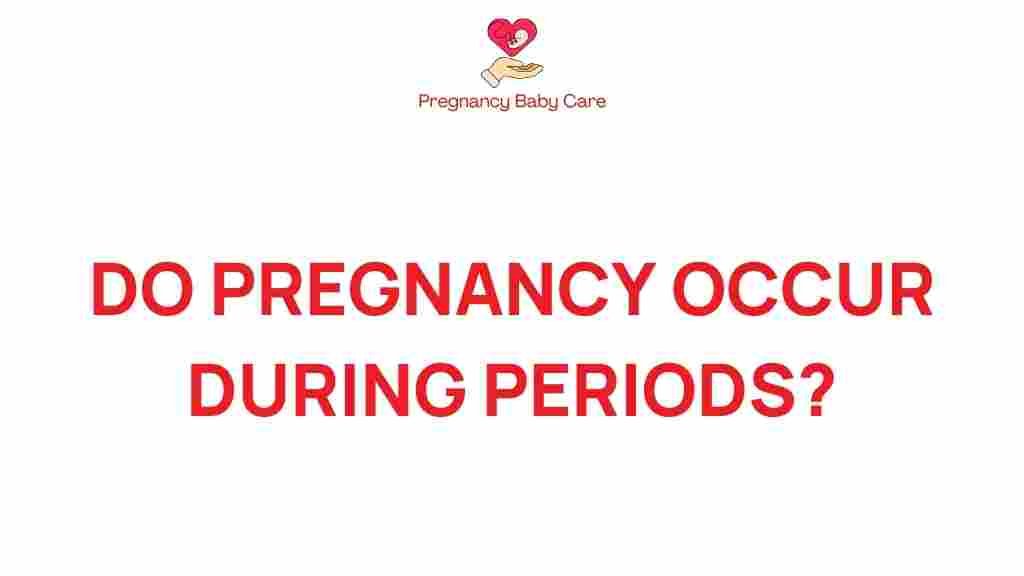Can You Conceive During Your Period? Unraveling the Myths
When it comes to understanding pregnancy and the intricacies of the menstrual cycle, many women are often left confused by the myriad of myths surrounding conception. One of the most commonly asked questions is whether it’s possible to conceive during your period. This article aims to unravel the myths, providing a clear understanding of fertility, ovulation, and the chances of becoming pregnant during menstrual bleeding.
Understanding Your Menstrual Cycle
The menstrual cycle is a complex process that involves several phases. Understanding these phases is crucial for grasping how conception works. Typically, a menstrual cycle lasts about 28 days, but it can range from 21 to 35 days for different women. Here are the main phases:
- Menstrual Phase: This is when you experience bleeding, usually lasting from 3 to 7 days.
- Follicular Phase: After menstruation, the body starts preparing for ovulation, which can last from day 1 to day 13 of the cycle.
- Ovulation Phase: Usually occurring around day 14, this is when an egg is released from the ovary.
- Luteal Phase: Following ovulation, this phase lasts about 14 days, leading up to the next menstrual period.
The Role of Ovulation in Conception
Ovulation is the key event in the cycle where conception can occur. Understanding when ovulation happens is essential for determining your fertility window. The egg is viable for about 12 to 24 hours after being released, while sperm can live up to 5 days in the female reproductive tract. This means that the days leading up to ovulation are critical for conception.
Can You Get Pregnant During Your Period?
Now, let’s address the main question: can you conceive during your period? While the likelihood is low, it is not impossible. Here are some factors to consider:
- Short Menstrual Cycles: If you have a short cycle (e.g., 21 days), ovulation may occur soon after your period ends, making it possible to conceive if you have intercourse during your period.
- Sperm Longevity: Given that sperm can survive for several days, if you have unprotected sex towards the end of your period, the sperm may still be viable when you ovulate.
- Irregular Cycles: Women with irregular menstrual cycles may find it harder to predict ovulation, increasing the chances of conception during their period.
Myths About Conception During Menstrual Bleeding
There are several myths surrounding the idea of conceiving during your period. Let’s debunk a few:
- Myth 1: You cannot get pregnant during your period at all. While the chances are low, it is still possible, especially for women with shorter cycles.
- Myth 2: Menstrual blood kills sperm. This is false; sperm can survive in the female reproductive tract regardless of menstrual bleeding.
- Myth 3: If you’re bleeding, you’re definitely not ovulating. Menstrual bleeding does not necessarily mean ovulation is not occurring soon after.
Identifying Safe Days
Many women use the calendar method to track their cycle and determine safe days for intercourse. Understanding when you are most fertile can help in planning or preventing pregnancy. Here’s how to identify your safe days:
- Track Your Cycle: Mark the first day of your period and count the days until your next period starts.
- Identify Ovulation: Ovulation typically occurs around day 14 in a 28-day cycle. Adjust accordingly if your cycle is shorter or longer.
- Determine Fertile Window: Your fertile window is roughly 5 days before ovulation and the day of ovulation itself.
- Safe Days: The days outside of your fertile window can be considered safer for unprotected intercourse if you’re trying to avoid pregnancy.
Step-by-Step Process to Increase Conception Chances
If you’re trying to conceive, understanding your cycle is crucial. Here’s a step-by-step guide to enhance your chances of conception:
- Track Your Menstrual Cycle: Use a calendar or a mobile app to keep track of your cycle length and ovulation days.
- Monitor Ovulation Signs: Look for signs such as changes in cervical mucus (it becomes clear and stretchy) and mild cramps.
- Have Regular Intercourse: Aim for unprotected sex during your fertile window, which is within the 5 days leading up to ovulation.
- Maintain a Healthy Lifestyle: Eat a balanced diet, exercise regularly, and avoid smoking and excessive alcohol to improve your overall reproductive health.
- Consult a Healthcare Provider: If you have concerns about fertility or irregular cycles, seek professional advice.
Troubleshooting Common Conception Issues
Sometimes, despite best efforts, conception may not occur. Here are some troubleshooting tips:
- Regular Cycle Monitoring: If your cycle is irregular, consult with a healthcare provider to explore potential issues.
- Understand Fertility Factors: Age, weight, and overall health can influence fertility. Make necessary lifestyle adjustments.
- Medical Evaluations: If trying for over a year (or six months if over 35), consider getting evaluated for underlying fertility issues.
Conclusion
In conclusion, while the chances of conceiving during your period are low, they are not nonexistent. Understanding your menstrual cycle, ovulation timing, and debunking common myths are key to navigating your reproductive health. Whether you’re trying to conceive or prevent pregnancy, knowledge is power. If you want to learn more about fertility and reproductive health, check out this comprehensive guide. Remember, if you have any concerns, don’t hesitate to reach out to a healthcare professional.
This article is in the category Pregnancy and created by PregnancyBabyCare Team
